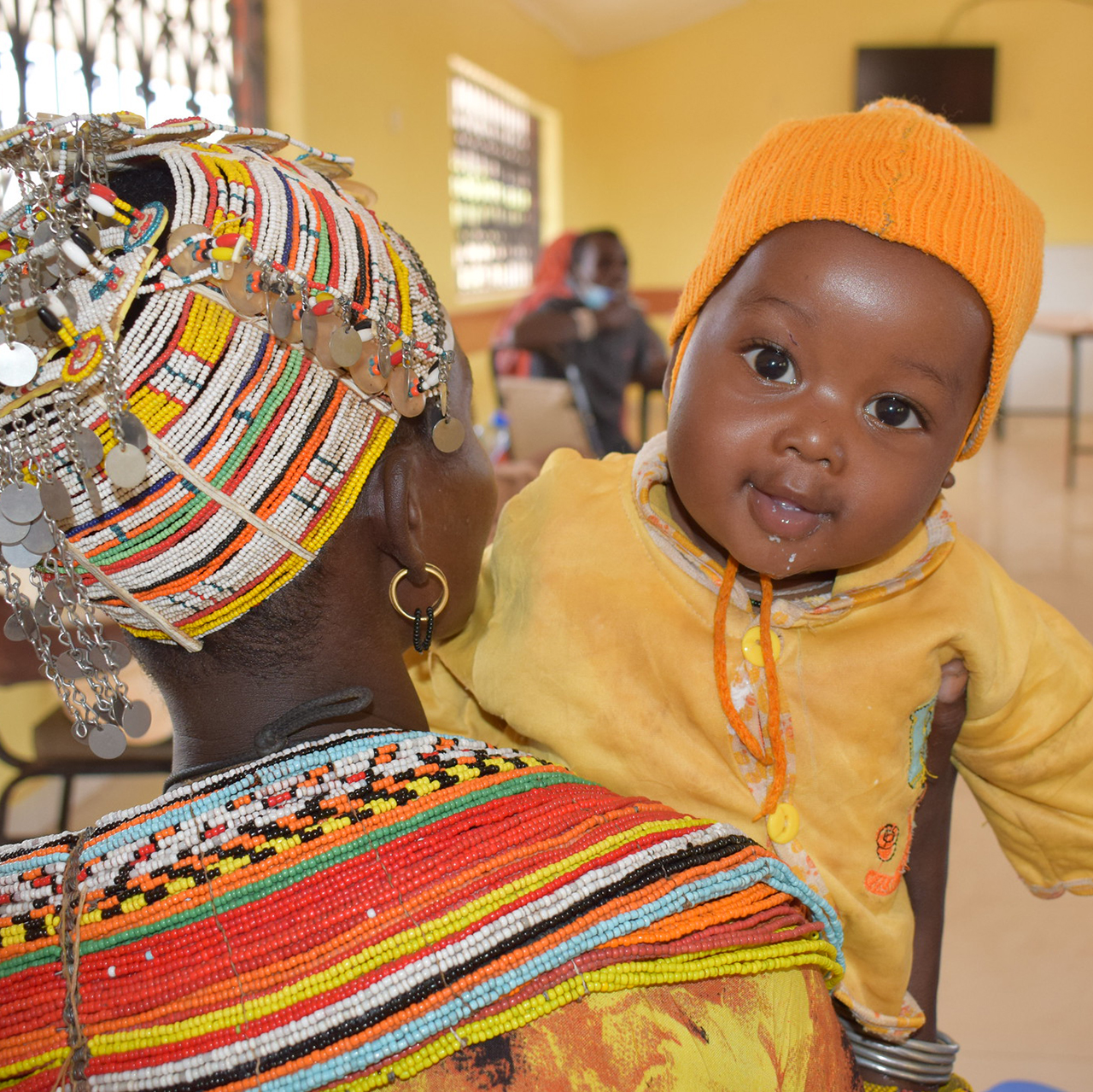
USAID Advancing Nutrition is supporting efforts to improve child health and nutrition in Kenya. Since 2015, community health volunteers (CHVs) have been implementing the integrated community case management (iCCM) program, providing their communities with identification, treatment, and referral services for common childhood illnesses such as pneumonia, diarrhea, malaria, and malnutrition. While iCCM has a significant focus on disease treatment, it is unclear what level of counseling CHVs provide to caregivers on preventive behaviors.
Conducting the Study
In 2021, USAID Advancing Nutrition conducted a qualitative study on the skills and capacity barriers including the effects of COVID-19 among community health volunteers in Turkana County, Kenya. The objectives of the study were to examine:
- whether CHVs received sufficient training and supportive supervision to counsel caregivers during childhood illness,
- the enablers of and barriers to effective CHV counseling, and
- how COVID-19 affected program implementation and activities by CHVs.
Identifying Gaps
The project conducted in-depth interviews and focus group discussions with a range of actors involved in iCCM including national, county, and sub-county health managers; community health committee members; CHVs; their supervisors; and mothers of children under five. The study found that—
- gaps related to pneumonia and nutrition-related counseling that CHVs provided within the iCCM program, including a misunderstanding of counseling to mean message dissemination
- workload, remuneration, community acceptance, and supervision all heavily influenced the quality of counseling on preventive behaviors
- CHVs played an active role in continuing community health services, adapting how they communicate with caregivers and their supervisors, reducing their scope at times, and taking on new responsibilities during the COVID-19 pandemic.
A Way Forward
In 2022, based on the study findings, USAID Advancing Nutrition organized a follow-on activity design workshop in partnership with the Turkana iCCM technical working group (TWG). Participants of the workshop, which included county and sub-county managers, CHVs, and their supervisors, determined that while counseling was a gap, strengthening iCCM service delivery was more urgent. A USAID Advancing Nutrition- and Child Health Task Force-supported gap analysis found very low coverage of iCCM services in Turkana County.
To strengthen service delivery, participants identified post-training support for CHVs as a critical need to fill through mentorship. USAID Advancing Nutrition provided technical assistance to the Turkana iCCM TWG as they developed a mentorship package to guide county-based iCCM trainers to mentor CHVs. Through this activity, USAID Advancing Nutrition used evidence with a deep consideration of local priorities to strengthen child health and nutrition in Turkana County, Kenya.
Feeding During and After Illness
In 2022, USAID Advancing Nutrition presented a poster on findings of the study related to CHV counseling on feeding during and after illness at the International Union of Nutritional Sciences - International Congress of Nutrition (IUNS-ICN) conference in Tokyo, Japan. The consultant who led the data collection for the study and was the lead author of the abstract, based on which the project developed the poster, was one of 26 recipients to win the Excellent Abstract Award from Overseas.